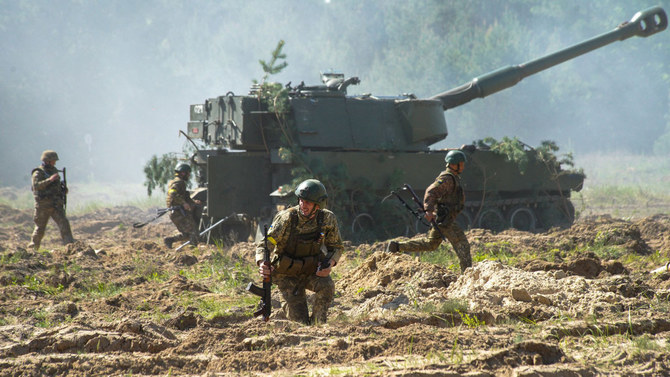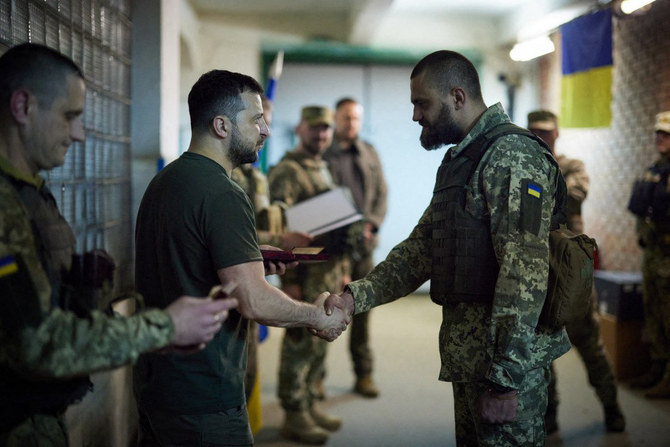KYIV: Ukrainian forces struggled to hold their ground in bloody street-to-street fighting in the eastern frontline city of Sievierodonetsk as President Volodymyr Zelensky said the situation was difficult, also pledging to retake Russia’s gains.
The days-long battle for the industrial city has emerged as pivotal, with Russia focusing its offensive might in the hope of achieving one of its stated aims — to fully capture surrounding Luhansk province on behalf of Russian-speaking separatists.
“We have to achieve a full deoccupation of our entire territory,” Zelensky said by video link at an event hosted by Britain’s Financial Times newspaper on Tuesday.
Asked about comments by France’s Emmanuel Macron that it was important not to “humiliate” Moscow, interpreted in Ukraine as implying some demands must be accepted, Zelensky said: “We are not going to humiliate anyone, we are going to respond in kind.”
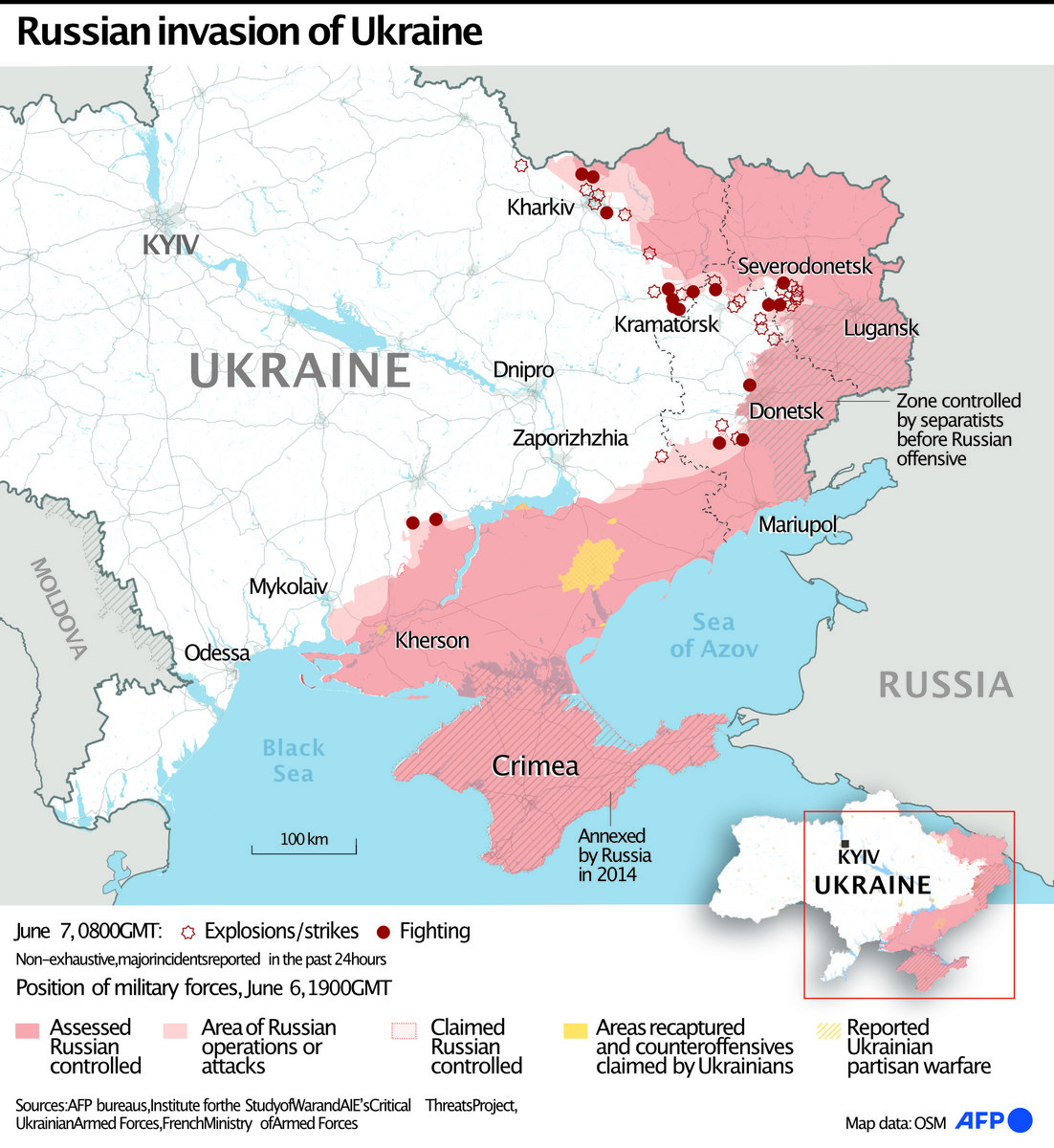
The governor of the Luhansk region, Serhiy Gaidai, said the defenders were finding it hard to repel Russian attacks in the center of Sievierodonetsk.
Sievierodonetsk, Lysychansk, and Popasna remain the most difficult places, Zelensky said late on Tuesday.
Moscow said its troops have been advancing, while Zelensky said the “heroic defense” of Donbas was ongoing. Reuters could not independently verify the situation on the ground.
Since being pushed back from Kyiv and Kharkiv, Russia has focused on the region known as the Donbas, comprised of Luhansk and Donetsk provinces, and closest to the Russian border.
Moscow says it is engaged in a “special military operation” to disarm and “denazify” its neighbor.
'Book of Executioners'
Ukraine and allies call this a baseless pretext for a war that has killed thousands, flattened cities and forced millions of people to flee. Zelensky said Ukraine would launch next week a “Book of Executioners” to detail war crimes.
“These are concrete facts about concrete individuals guilty of concrete cruel crimes against Ukrainians,” he said.
Russia says it has gone out of its way to avoid targeting civilians in its operation in Ukraine.
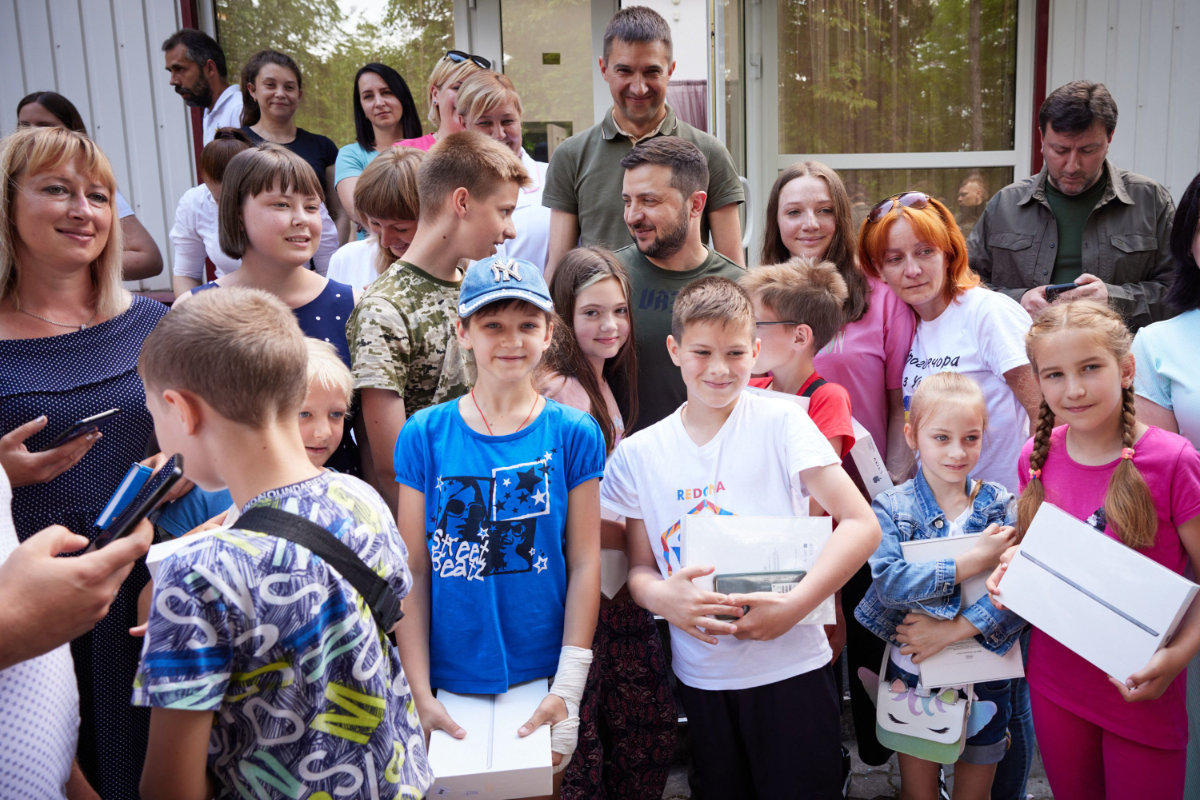
President Volodymyr Zelensky (C) visits a sanatorium in the Zaporizhzhia region serving as refuge for Ukrainians forced to leave their homes amid the Russian invasion. (AFP)
Satellite imagery from Maxar Technologies collected on Monday showed significant damage in Sievierodonetsk and nearby Rubizhne.
“Russian multiple rocket launchers, self-propelled and towed artillery are deployed to the northeast and oriented in firing positions toward the cities,” the US company said in a release.
Ukrainian officials had said their forces staged a surprise counter-attack last week, driving the Russians from part of the city center.
Before that, Russia had seemed on the verge of encircling Ukraine’s garrison in Luhansk, attempting to cut off the main road to Sievierodonetsk and its twin city Lysychansk.
Ukraine’s second city, Kharkiv, was also hit by shelling on Tuesday, and the local mayor said one person was killed. The northeastern city had been quieter in recent weeks.
Viacheslav Shulga, an employee at a pizzeria in the north of Kharkiv that was hit, said there had been hopes the restaurant could reopen soon.
“Everything is destroyed. We are removing equipment, there will be no business here for now,” he said.
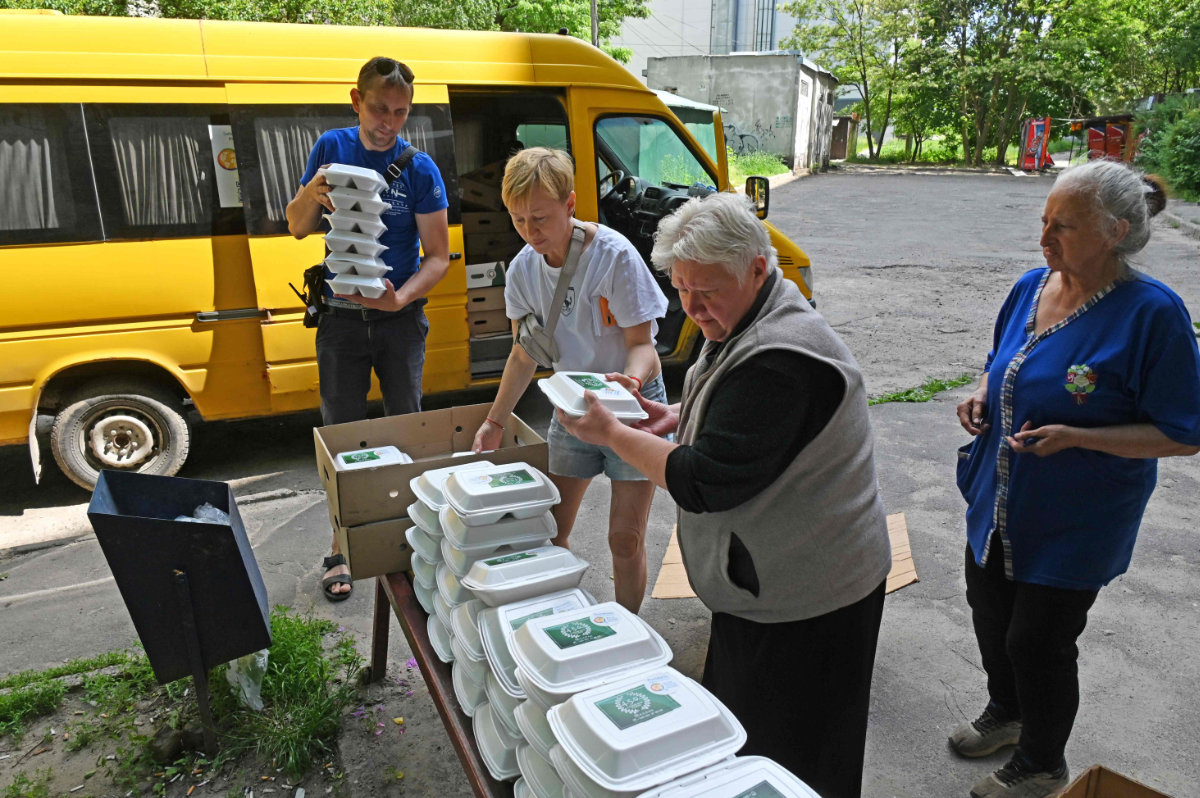
Volunteers deliver ready meals to residents of the Saltivka district, north of Kharkiv, on June 7, 2022, amid Russian invasion of Ukraine. (AFP)
More than two weeks since a siege of the southern city of Mariupol ended, Tass news agency cited a Russian law enforcement source as saying that over 1,000 Ukrainian soldiers who surrendered there have been transferred to Russia for investigation.
Global crisis
As the effects of the war are felt around the world, the United States added further sanctions to Moscow by banning US money managers from buying any Russian debt or stocks in secondary markets.
The World Bank approved $1.49 billion in fresh funds to help pay wages for government and social workers in Ukraine as it and other countries deal with the damage to its economy.
Ukraine is one of the world’s biggest exporters of grain, and Western countries accuse Russia of creating the risk of global famine by shutting Ukraine’s Black Sea ports.
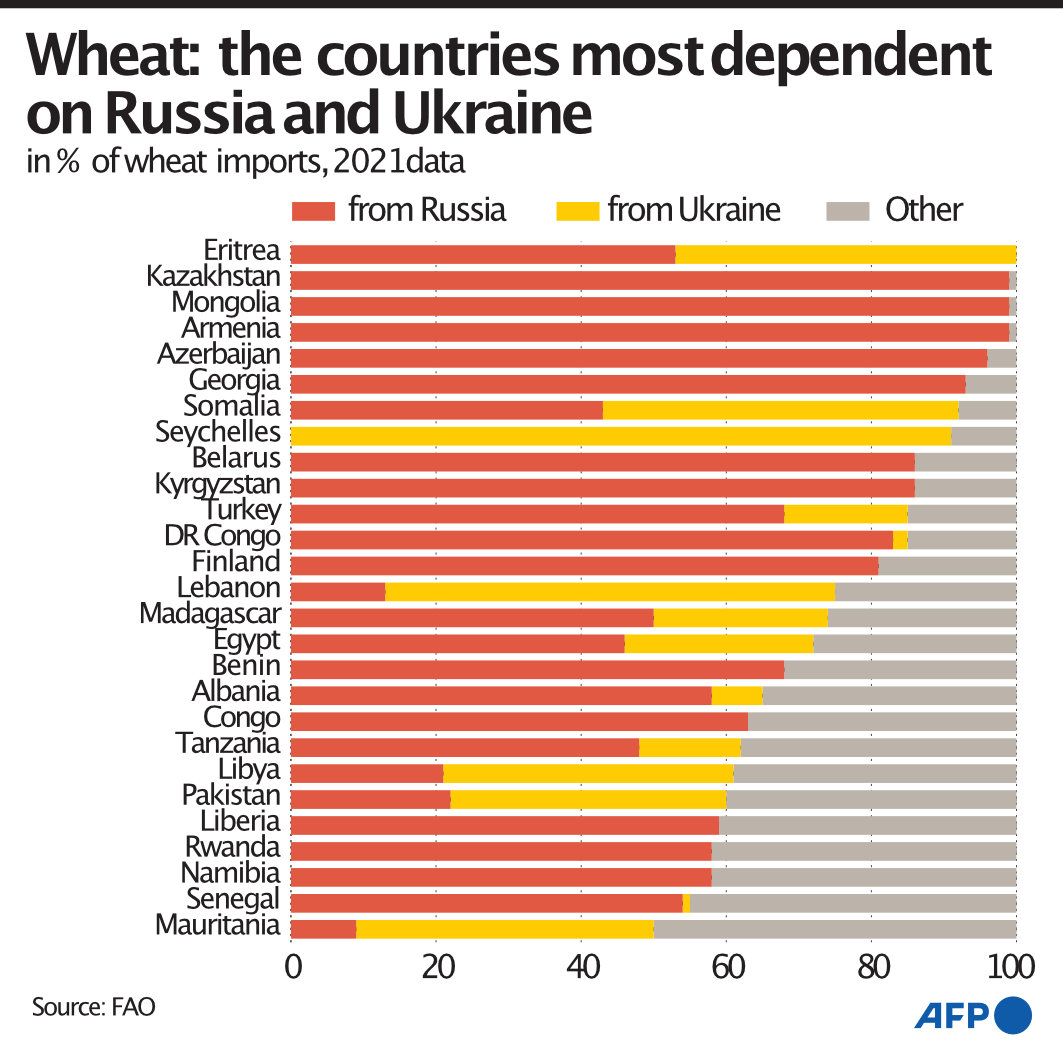
The governor of the region that includes the port of Mykolaiv said weekend shelling had destroyed warehouses in one of Ukraine’s largest agricultural commodities terminals.
Moscow denies responsibility for the international food crisis, blaming Western sanctions.
Russian Defense Minister Sergei Shoigu said the Russian-occupied Ukrainian ports of Berdyansk and Mariupol were ready to resume grain exports. Ukraine says any such shipments from territory seized by Moscow would amount to illegal looting.


